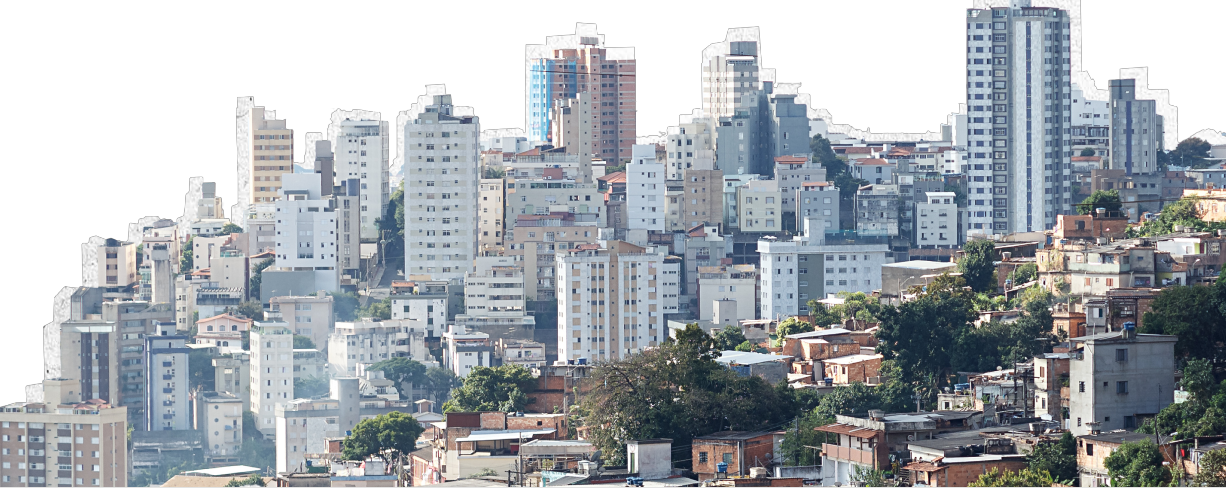SALURBAL 2017-2023
Urban Health in Latin America
Launched in 2017, Salud Urbana en América Latina (SALURBAL), the Urban Health in Latin America Project, convened faculty, students, and staff from partner institutions across Latin America and the United States.

Overview
SALURBAL engaged over 200 professionals from multiple disciplines to study the ways urban environments and urban policies impact the health of city residents throughout Latin America.
SALURBAL collected and harmonized data from 371 cities in 11 countries, allowing the team to examine differences in health and wellbeing both between and within urban areas. Project dissemination and policy outreach activities engaged diverse stakeholders across Latin America to ensure that project findings informed policies and interventions to create healthier, more equitable, and more sustainable cities.
SALURBAL had four core aims
Aim 1: Identify city and neighborhood drivers of health and health inequities among and within cities
The SALURBAL team produced more than 100 publications, including peer-reviewed journal articles, policy briefs, and data briefs. Key findings were disseminated in English, Spanish, and Portuguese via press releases, blog posts, a regular newsletter, and across social media channels.
Aim 2: Evaluate the health, environmental, and equity impacts of urban policies and interventions
SALURBAL's policy evaluation studies helped understand the health and environmental impacts of six city and neighborhood-level policies and interventions over time.
Aim 3: Employ systems thinking and simulation models to evaluate urban-health-environment links and plausible policy impacts
SALURBAL analyzed urban data and applied systems approaches to understand the dynamic relationships between urban environments, health, equity, and environmental impacts.
Aim 4: Engage the scientific community, the public, and policy makers to disseminate and translate project findings
The project's region-wide research translation efforts adapted to local contexts and priorities and fueled the development of evidence and tools to support urban policymakers, planners, and policy development processes across the region. Local dialogues, regionally-focused webinars, and other events convened urban health stakeholders throughout the region to discuss the relevance of project findings for decision making.
Funding
SALURBAL 2017-2023 was funded by the Wellcome Trust [205177/Z/16/Z] and led by Ana Diez Roux, MD, PhD, MPH, Director of the Urban Health Collaborative and Distinguished Professor of Epidemiology at the Dornsife School of Public Health at Drexel University.
Institutional Partners
Universidad Nacional de Lanús, Argentina
Fundação Oswaldo Cruz, Brazil
Universidade Federal de Minas Gerais, Brazil
Universidade de São Paulo, Brazil
Pontificia Universidad Católica de Chile, Chile
Universidad de Chile, Chile
Universidad de los Andes, Colombia
Instituto de Nutrición de Centroamérica y Panamá (INCAP), Guatemala
Instituto Nacional de Salud Pública (INSP), Mexico
Universidad Peruana Cayetano Heredia, Peru
Drexel University, USA
Washington University at St. Louis, USA
University of California at Berkeley, USA
Pan American Health Organization (PAHO), USA
SALURBAL-Climate
In late 2023, the SALURBAL team was awarded five additional years of funding to continue exploring the impacts of climate change on health and health inequities in Latin America.
Learn About SALURBAL-Climate